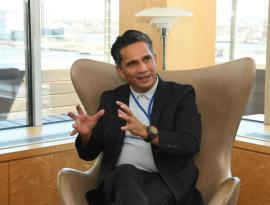How connected technology, AI can help cut healthcare costs
Kenya's health insurance sector is experiencing rapid growth, yet a significant portion of the population remains uncovered. Only 3% of Kenyans possess private health insurance, a figure considerably lower than the global average. While factors such as low income and limited awareness contribute to this disparity, the escalating costs within the healthcare industry present a pressing challenge.
Kenyan insurers are grappling with soaring claims, evidenced by medical insurance loss ratios that consistently exceed the global benchmark of 50-70%. According to the Insurance Regulatory Authority (IRA), Kenya's medical insurance loss ratio reached 78.9% in 2023. More alarmingly, it stood at 76.5% in the first half of 2024, marking an increase from 67.3% during the same period the previous year. This persistent rise is unsustainable and threatens to force insurers to raise premiums, thereby further marginalizing lower-income households and hindering efforts to broaden access to quality healthcare.
The root cause of this issue lies in the reliance on outdated, manual systems and processes within both the insurance and healthcare industries. Claims are processed manually, crucial data remains siloed, and decisions are often made reactively. This antiquated approach leads to delays, high administrative costs, errors, and missed opportunities to optimize products or proactively detect fraud, waste, and abuse.
However, a more efficient approach exists through the adoption of AI, automation, and connected data. These technologies empower stakeholders to reduce costs, accelerate processes, and enhance healthcare affordability. M-TIBA, a data-driven health insurance platform utilized by several Kenyan insurers, exemplifies this progress. Real-time data insights have facilitated a reduction in healthcare costs by up to 15%, significantly accelerated fraud investigation cycles, and enabled automated claims processing, resulting in faster and more accurate outcomes. Policyholders also benefit from increased transparency and trust through real-time claims tracking.
Technology and AI are subtly revolutionizing the healthcare landscape. They enable the detection of unusual billing patterns, prevent erroneous or duplicate claims, and empower doctors and insurers to make faster, more informed decisions. This translates to improved service, reduced delays, and the potential for more affordable coverage options.
Despite the transformative power of technology, the human element remains crucial. AI serves as a tool to augment human capabilities, not replace them. Doctors, claims officers, and customer care teams can leverage AI to focus on problem-solving, patient care, and service enhancement. By embracing data sharing, the industry can improve pricing accuracy, expedite waste detection, and serve Kenyans more efficiently.
In conclusion, while challenges persist within Kenya's health insurance industry, the integration of technology, particularly AI and automation, offers a promising path toward greater efficiency, affordability, and accessibility. By embracing these innovations while preserving the essential human touch, Kenya can strive towards a more equitable and sustainable healthcare system.










